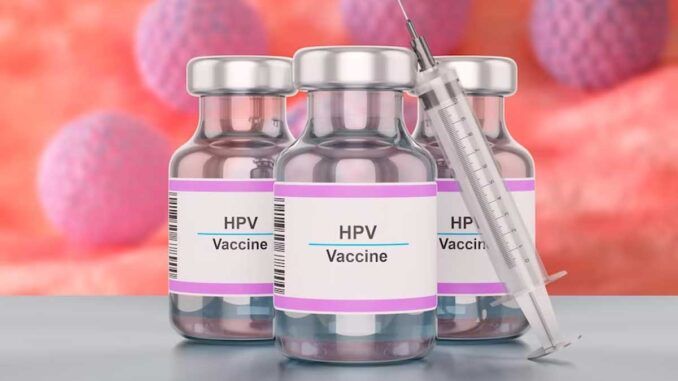
The National Institutes of Health awarded $340,000 to test psychological tactics aimed at persuading 10 – 11 year old children and their parents in South Africa to accept the HPV vaccine.
Grant documents obtained by Children’s Health Defense (CHD) via a Freedom of Information Act request have revealed that the NIH is funding research on how to boost the uptake of the controversial human papillomavirus (HPV) vaccine among fifth-grade boys and girls in South Africa.
The Defender reports: The NIH awarded approximately $340,000 to principal investigators Dr. Ingrid Katz, a physician at Brigham and Women’s Hospital in Massachusetts, and Lisa Michelle Butler, Ph.D., an epidemiologist at the University of Connecticut.
The grant funds a project to develop and test school-based communication strategies targeting children and their parents at schools in the KwaZulu-Natal province in South Africa, to determine what types of communication are more likely to result in more children getting the HPV vaccine.
The funding covers a one-year pilot feasibility study in five schools to test strategies that the researchers will then refine and test on hundreds of children in a larger, “full-scale hybrid type 2 trial.”
The researchers hope the school-based communications strategies they develop will help increase child and adolescent HPV vaccination uptake in South Africa from the current rate of 37% of girls to the target rate of over 80% of all children ages 9-12.
They hope to later use the same strategy in other low- and middle-income countries to increase their rates as well.
“The HPV vaccines have not been independently evaluated for both safety and efficacy,” said Dr. Shankara Chetty, a general practitioner and natural scientist from KwaZulu-Natal. “As such, no amount of coercive marketing strategies will suffice to honestly inform the recipients in their decision to consent.”
“Seeing that minors are being targeted, it is imperative that the guardians of these minors are given all the current information and, more importantly, made aware of the lack of information on safety and efficacy to make an informed choice,” Chetty said. “This cannot be done by the industry profiting from its rollout.”
Part of $40 million grant initiative to promote HPV shots
CHD in June 2023 identified nearly 50 grants awarded by the U.S. Department of Health and Human Services (HHS) and its sub-agencies, including the NIH. The grants, totaling more than $40 million, went to universities, healthcare systems and public health departments to use behavioral psychology strategies to increase HPV vaccine uptake among adolescents.
This is the first grant CHD identified that uses those same methods to target children in Africa.
The research fits into a broader program across HHS institutions that includes hundreds of millions of dollars in grant funding to develop and test strategies to increase the uptake of all vaccines among vaccine-hesitant low-income communities and communities of color using “culturally tailored” messaging in the name of “health equity.”
It is also in line with a push to provide substantial grant funding to increase HPV vaccination rates by “raising awareness” and combating “misinformation.”
Source link

